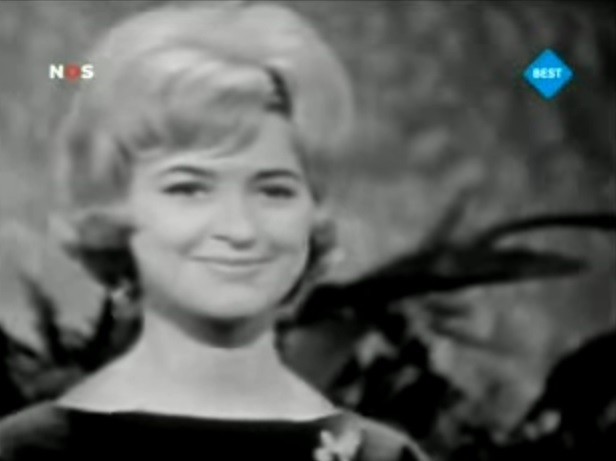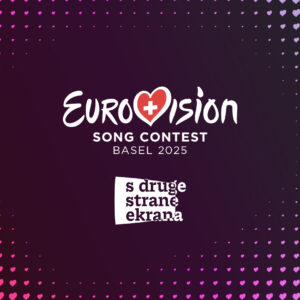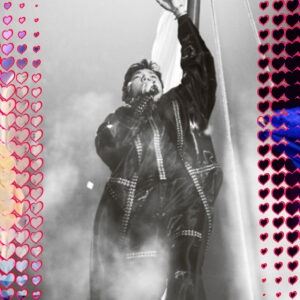Yugoslavia took part in the Eurovision Song contest for the first time in 1961, when the contest was held in Cannes. A singer from Novi Sad, Ljiljana Petrović had the honor to be the first Yugoslav representative. Although some great music names such as Lola Novaković, Gabi Novak, Anica Zubović, Đorđe Marjanović participated in the first „Jugovizija“, by that time unknown Ljiljana Petrović managed to capture the hearts of the jury and win with the song “Neke davne zvezde“ (Some stars from long ago). Ljiljana fondly remembers how it all looked like and in the interview for Eurosong.hr she says why she had been the chosen one, how the song had been made and what the performance had actually meant for her.
How is it that You came to represent Yugoslavia in the 1961 Eurovision?
It was the result of two things. I was in the right place at the right time. The place was Ljubljana, which was to organize the first national selection for Eurovision. But before that, I was in Ljubljana out of an entirely different reason, which was the recording of my first record. When I was finished with all the necessary recordings and got back home to Novi Sad, after a certain time I got a call from Ljubljana and they told me: “A young composer Jože Privšek listened to your record“. Some months before that he won in Opatija with a song that was a big hit then, “Vozi me voz u daljine“ (The train takes me far away). When Privšek asked them: “This voice, what is this voice?“, they told him that it belongs to a beginner from Novi Sad. Although he never saw me before that, he said this about my voice: “If this voice sings my song, I will go to Cannes and I’ll represent Yugoslavia as a composer for the first time.“ He also added that his song wouldn’t take part in the competition if it wouldn’t be me singing his song.
Could You tell us how the lyrics of „Neke davne zvezde“ were made after You were sent the music?
When Duško Hren, the chief organizer, called me and explained the whole thing to me I told him to send me the notes and in my head I thought that the author of the lyrics could be Miroslav Antić. He was in Opatija that year and already had some experience. And that’s how ‘Mika’ decided to write the lyrics. However, he was used to make lyrics upon which the music was to be made, meaning that this was a challenge for him as well. We wrote the lyrics from 9 A.M. to 5 P.M. It was simply amazing – he says “sing this part to me“, I go, and when it wouldn’t work, we tore the paper and did it again and again. When everything was finally done we immediately sent the song to Ljubljana, and then everything ensued pretty quickly. Jože Privšek made one excellent arrangement.
Tell us something about Your first major performance which was actually at the first „Jugovizija“.
After a journey to Ljubljana which lasted all night, they wanted me to sing the song at once, something I simply couldn’t. I went to the hotel and had a good nights’ sleep. Afterwards we went to the studio, recorded, and interestingly enough, that recording still plays today. Three TV-centers were in charge for the first „Jugovizija“ (Zagreb, Ljubljana and Belgrade), and they offered three songs which were to be sung by three singers, so it turned out I was singing for Ljubljana. I had my spot and no one had a problem with that because when I recorded the song everyone liked it and Privšek was very pleased. I did everything the way he had in mind. After a unanimous decision of the jury that the song „Neke davne zvezde“ should got to Cannes I went on stage again to sing it. I couldn’t believe what happened, I was shocked. After I came down from the stage, only Lola Novaković and Anica Zubović were there. Lola just said to me: „What’s wrong with you, why aren’t you happy?“ The two of them approached me, hugged me and congratulated me.
You got the opportunity to be the first representative of Your country in the contest for the best song of Europe. Did You get stage fright? How did You feel when you came on stage?
Since we took the train to Cannes I couldn’t sleep the entire trip so I sang my song all the way. I didn’t talk at all, just sang it for myself. We got a very lovely welcome in the host city of the 1961 Eurovision. I didn’t get much sleep, since the first rehearsal came very soon. It was in the renowned hall where the Cannes film festival takes place. Soon it was our turn and we were found very interesting. Mika Antić, other than being our tour leader and lyricist, also came as a journalist and also our caretaker. He was constantly telling us that we should be careful about the things we do considering that we are from a socialist country, that we are not to be too ostentatious or lustrous, as the capitalists are. I was told not to perform in a blue dress as I had planned, but rather a little black one. I wasn’t even allowed to put on any make up or get my hair done. He kept saying I had to be natural. However, I somehow managed to fool him and in the end both had make up and had my hair done. I was incredibly nervous during the first general rehearsal. Privšek asked the orchestra to wait a bit, turned around to me and said: „What did we say – if you could sing in Ljubljana, you can do it in Cannes, it’s the same thing.“ I started and afterwards everything was easier.
How significant was that performance for You and for the former Yugoslavia?
To be first in something means a whole lot, and it especially meant for Yugoslavia, which is actually the most important thing. We were presenting our country, and we proved ourselves exceptionally. Jean-Claude Pascal, who won, said something during the formal dinner after the show: „I don’t consider myself the winner, because that title belongs to Yugoslavia.“ When the voting finished, we were in the eighth position, but that didn’t matter whatsoever, who came in which place. A success was the mere fact that we came on that stage, that we showed that we are worthy of the European scene and that there’s nothing wrong with us. The ice was broken in the way that no one could take us away from Eurovision. That was a coming-out to the European scene, in the true sense of the word.
Did You maybe get an additional opportunity to represent Your country in the following years?
Yes, yes, Privšek wanted me to sing as soon as next year, but Belgrade was strongly against that, because „I didn’t have the experience“. Ljubljana couldn’t believe that because everything turned out right, but Belgrade wanted Lola Novaković to go.
The contest changed immensely as the years passed by. What do you have to say about that?
The Eurovision began in black and white. When color came into play everything else came as an earthquake. It hit Eurovision. That’s how much the multimedial moment came up front. From year to year something new was added, like it had to be something new. We sang so long in black in white and nothing was wrong with that. That’s when the music came second and suddenly the way someone was dressed came first, the way someone made themselves colourful, shiny. The stage got very crowded, people finding ways to make it more nifty. As the years passed the music got more and more distant.
The portal Eurosong.hr thanks Ljiljana for the time taken for this interview and wishes her all the best in the New Year.
Translation: Tomo Maretić







Još nema komentara. Neka tvoj komentar bude prvi?